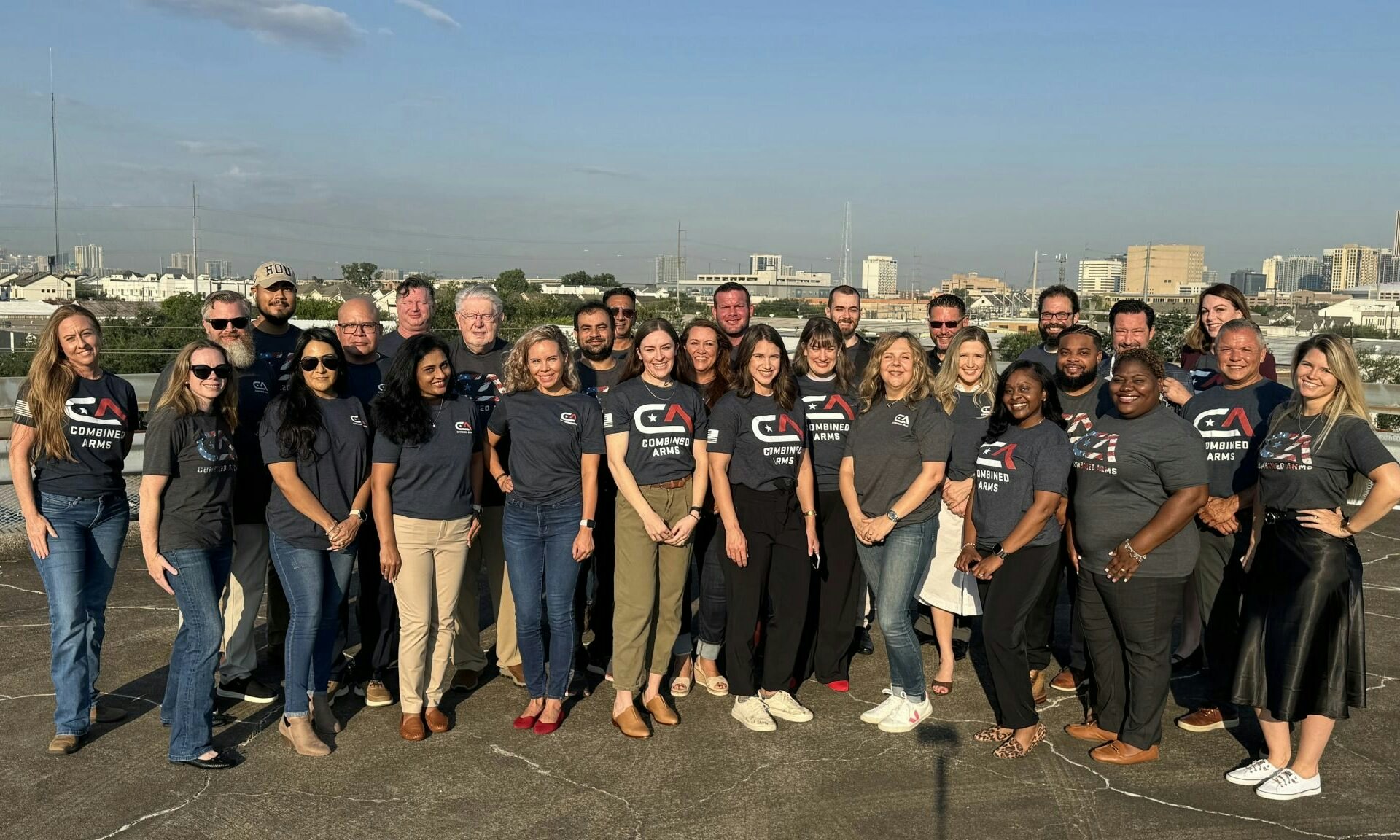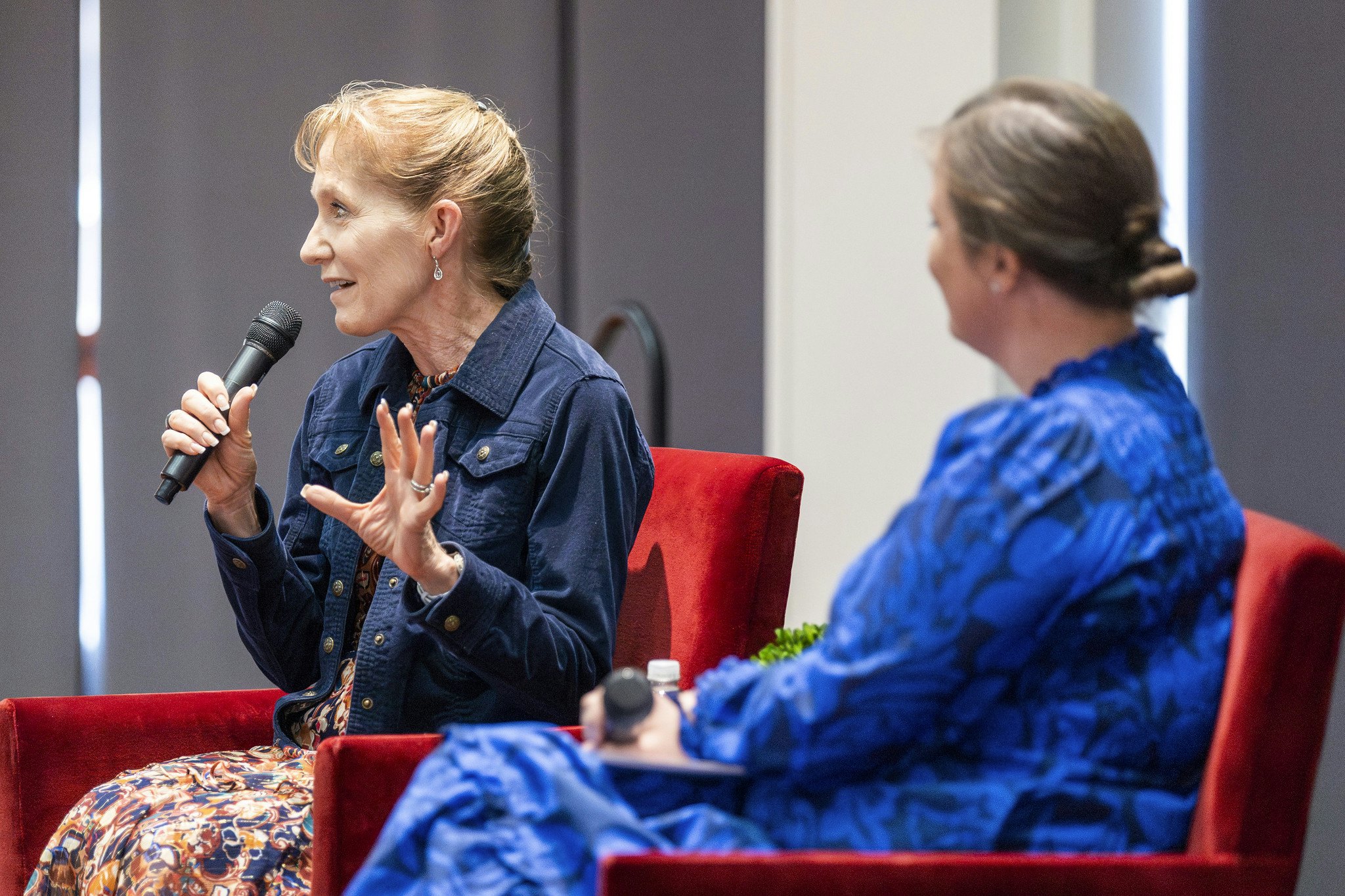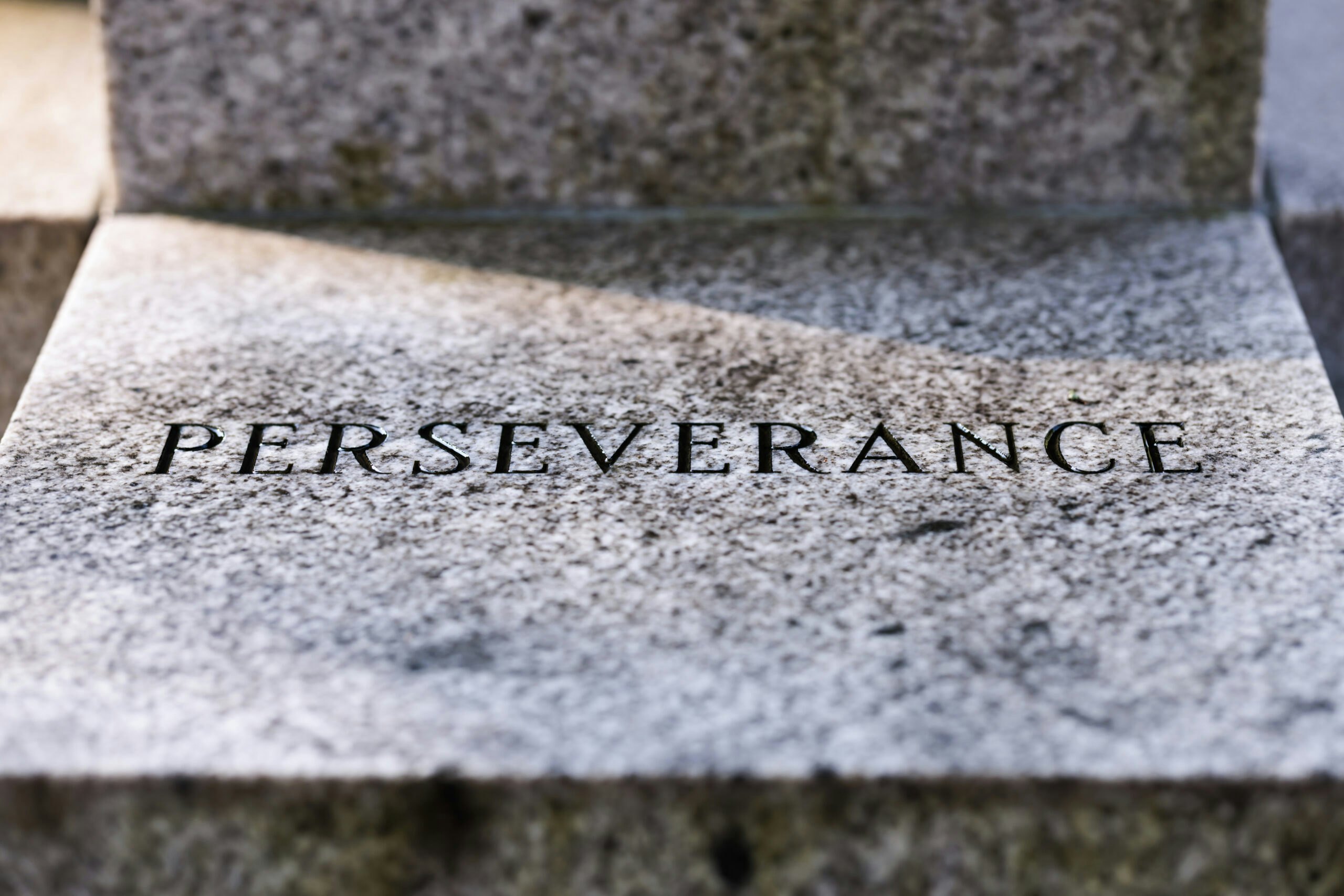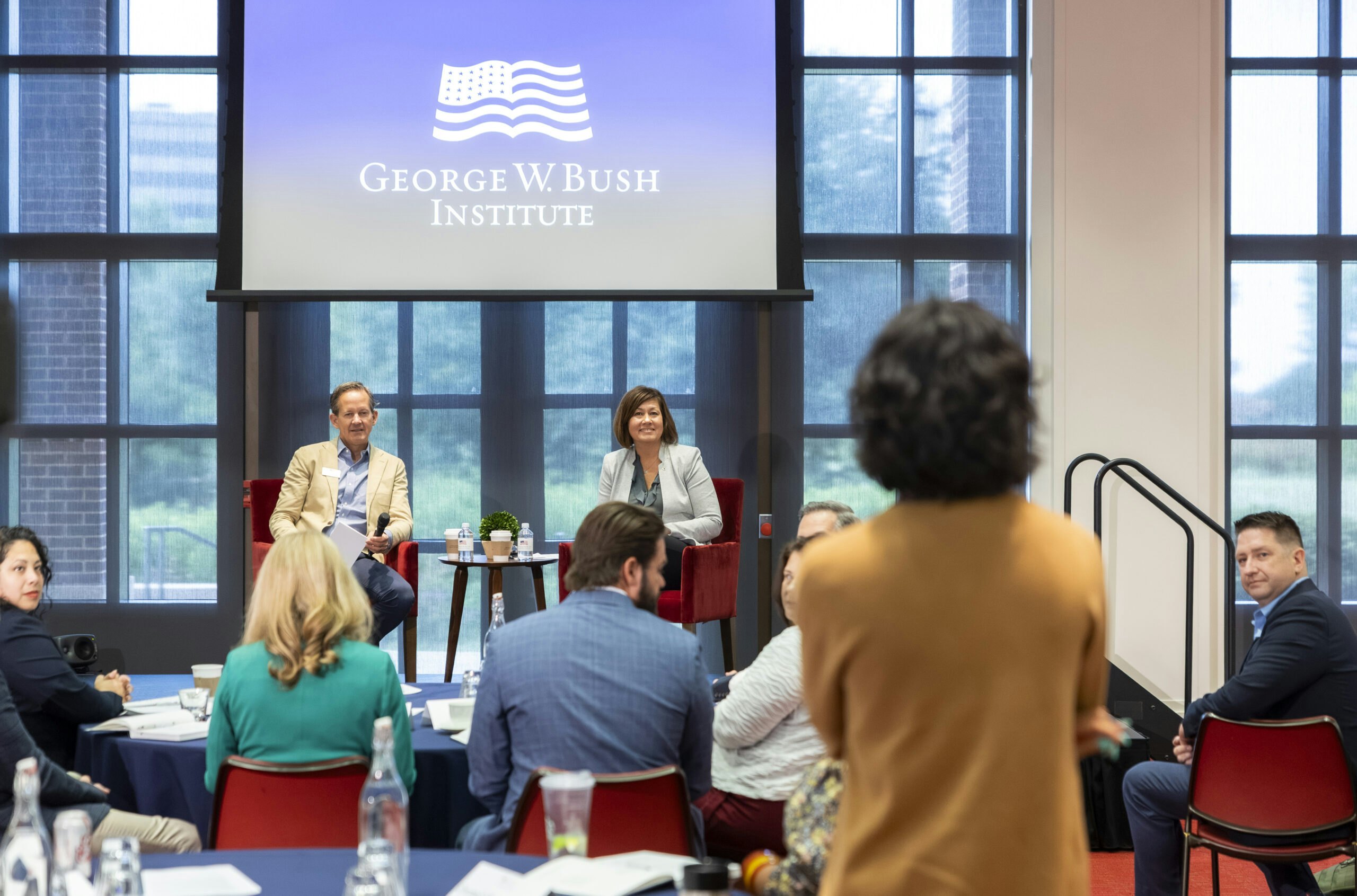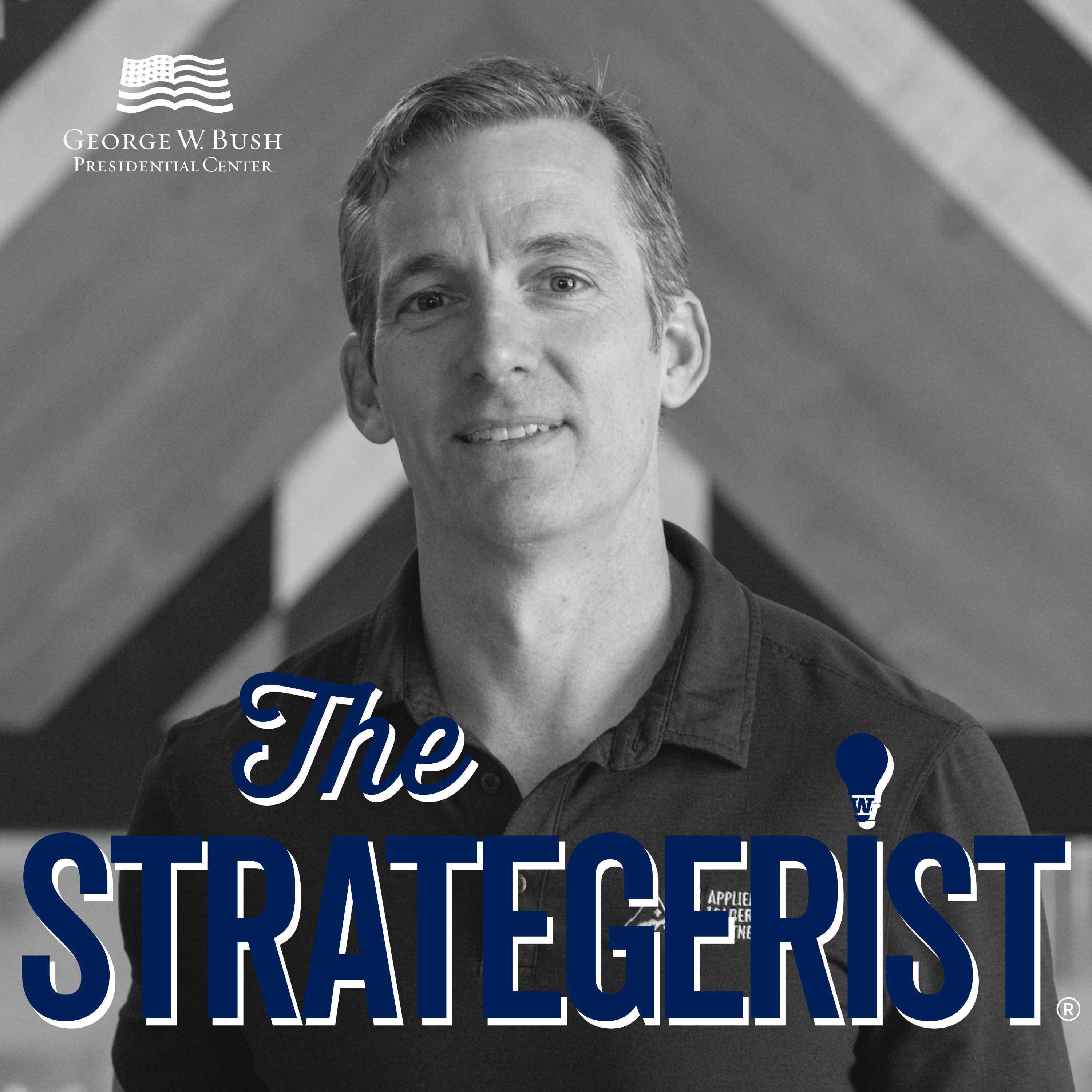Robert McDonald, the 8th Secretary of the Department of Veterans Affairs and retired Chairman, President, and CEO of Procter & Gamble, recently joined the Stand-To Veteran Leadership Program Scholars at the Bush Center for a conversation on leadership, his many career transitions, and the importance of serving our Nation's veterans. Read a continuation of the discussion below.
You’ve had many transitions in your career. Could you share one or two things you learned in your transition from the Army into the private sector and then to the VA?
I think transitions are always difficult in life. And to me, one thing that can inhibit a successful transition is being afraid to start over again. For example, I was in a leadership role at West Point. And then when I graduated and I became a student at Ranger School, I wore no rank. I was starting over again. When I left the Army, I went to the Proctor & Gamble Company. I started at the bottom. I was starting over again.
And while that seems like you’re moving backwards. You must have confidence in yourself and confidence in the talents you gained, particularly if you’re a veteran. Don’t be afraid to start over again and then build from that base. I started at the entry level at the Proctor & Gamble Company. When I walked into the VA, I was brand new. So don’t be afraid to start over again.
The other thing I would say is be an insatiable learner. When people ask me what differentiates those who succeed in life or at the Proctor & Gamble Company or at the VA versus those who don’t succeed, it’s those people who throughout their entire career and throughout their entire life are insatiable learners. They want to learn new things. Everything will always change around us. And many people think that Darwin said, “It’s the survival of the fittest.” It’s not. It’s the survival of the most adaptable. We have to be willing to learn new things. And as you get older and older, it’s harder to learn new things because your history is what got you to where you are. You really have to work hard. If you hear a word you don’t understand, write it down, go look it up, figure it out. If there’s a new device out there you don’t know how to use, go learn how to use it. And that’s the way you stay relevant.
Can you talk a little bit about your leadership style and the influences throughout your life that helped shape it?
I’ve never been good at capturing in words what my leadership style is, but I’d probably say it’s about servant leadership. And I think that the most valuable aspect of that was, of course, going to West Point and being in the Army. At the Proctor & Gamble Company, as in any organization with a culture of leadership, we had a leadership model. We called it the 5-E Model.
The first E was envision, create a vision for the organization. Where do you want to be five years from now? The next was engage. If you create that vision, don’t do it by yourself. Create it with the people in your organization – cascade it throughout the organization. The next was energize – how do you motivate people? What are the behaviors you can use to motivate people to energize them to achieve the vision? Next was enable. How do you build the organization capability to achieve that? Because a lot of times, leaders don’t work hard enough on building organization capability. And then last but not least, the fifth E was execute. Because you can have the greatest strategy in the world, but if you don’t execute it, it’s going to be of little value.
Leadership is nothing but a collective set of behaviors. So I see you behave, I label that leadership. I can train those behaviors. The hardest thing to train though is do you really love the people you work with? Because without that authentic love and empathy, those behaviors will be hollow, they’ll be superficial. And the people won’t respond to your leadership. So, that’s a really important component. And I think the military experience does a great job. You’re all soldiers and in my case, soldiers in the Army. We all dug foxholes; we all deployed together. You really learn to love the people you work with, and you rely on them. Your life is dependent on them, and their life is dependent on you.
What values have been most important to you in your career?
For me, my Christian faith is an important part of my values system. Certainly, the values of West Point and the idea of duty, honor, country and also the idea of the cadet honor code that we don’t lie, cheat, steal, nor tolerate those who do are all important to me.
I found that the best organizations, whether they’re businesses or government organizations are those that are led by values. At the Proctor & Gamble Company, we had five values. We had a purpose – purpose was improving lives of the world’s consumers. We spent a lot of time training that purpose and training those values, recruiting for people who had some congruency with that purpose.
Mental health care just became a bit more accessible with the release of the new 988 hotline number. Can you talk about the importance of this progress, not just for veterans but more broadly?
To me, mental health is a huge issue. Not just for veterans, but for the entire population. I think the numbers are something like 20% to 25% of the American public suffers from depression. And I think the correct number is 56% of it goes undiagnosed. It is a challenge. If you break your leg, we can very easily identify that you’ve broken your leg, and we know how to fix it. If you are depressed or you’re schizophrenic or you have a mental health issue, we have difficulty diagnosing it. And then the process tends to be trial and error to try to fix it.
I think it’s an epidemic in our country. It’s an epidemic because of the numbers, but it’s also an epidemic because of the nascent way that we know how to treat it. So I think a lot of attention needs to go into this. I was pleased to see the new number. We had a similar problem at the VA where you’d call and you would hear somebody on our line say, “If you’re in crisis, call this new 10 digit number.” And people just aren’t going to do that when they’re in crisis. It’s got to be easy, it’s got to be accessible, and we’ve got to have the trained people on the other end of the line to solve the problem.
How can young leaders strive toward making the workplace better?
I think the needs of the workplace are constantly changing. When I was a young business leader in the 1980s, there was a book out called In Search of Excellence by Peters and Waterman, and they talked about managing by walking around. Then in 1990 or so, I became responsible for our hair care business in all of Asia, which involved countries from Korea to Australia, India to Japan. You can’t manage by walking around if you’re managing people in all those different geographies. Then I became a global leader of the company. Now with COVID, people are experiencing leadership of people who aren’t in the office at all.
You’ve got to adapt your leadership style. You don’t lose the empathy and the behaviors of leadership may not change, but you’ve got to adapt your style to find other ways to do things. How do I motivate people remotely? It requires a high level of thinking and work. The most important thing it requires is you must be terribly intentional. You have to be deliberate. And you have to really think about it. You can’t allow it to just be serendipitous. And I just don’t know that we spend enough time being deliberate about leadership. But that’s what’s great about the [Stand-To Veteran Leadership Program] – we’re very deliberate about our leadership, starting with our purpose statement, and our mission statement.
What are you reading right now that you might recommend?
I’m always reading. Because I’m always afraid there’s a piece of information out there I need that I don’t yet have. So I picked up a new book that was just published by Henry Kissinger called Leadership. And it takes the lives of several national leaders, Margaret Thatcher, Konrad Adenauer, Charles de Gaulle, Lee Kuan Yew, and it talks about their rise and their leadership. And it’s really a fascinating book looking at the history of those countries through the leadership of those people.













